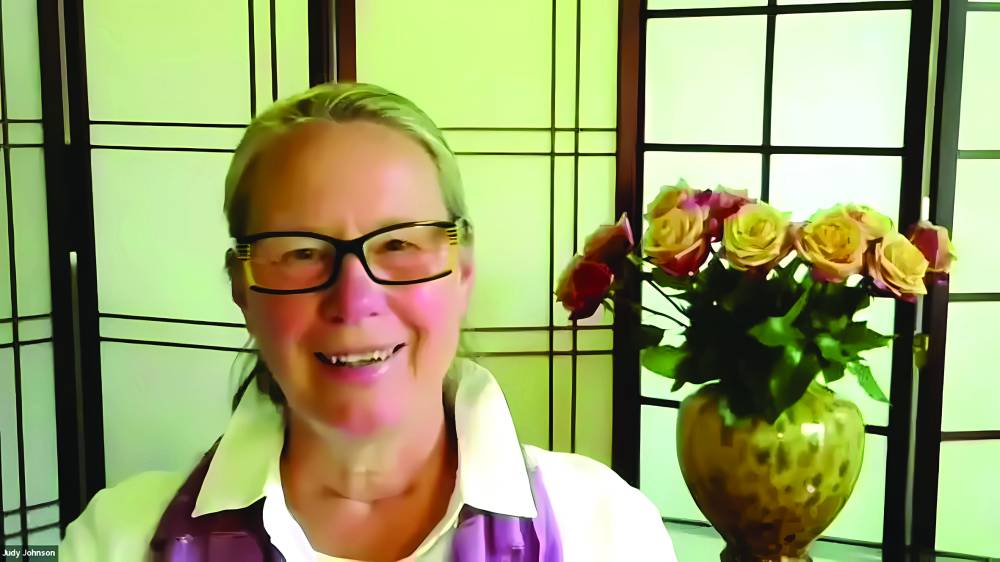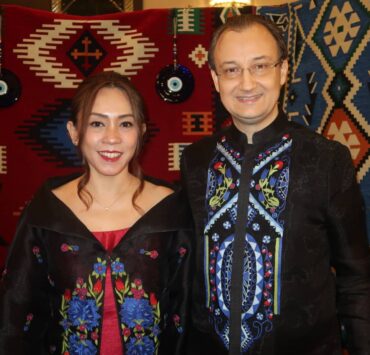Be kind to others, but be kind to the self first

Kindness is the cornerstone of human existence, said Canadian coaching consultant and facilitator Judy Johnson.
“Beneath all the noise and sorrow, there’s a bedrock that never moves,” she explained in a webinar hosted by Brahma Kumaris Makati. “And that bedrock is love.”
Johnson quoted J.R.R. Tolkien, author of “The Hobbit” and “The Lord of the Rings,” who wrote that “small acts of kindness and love” are what truly combat evil.
Delving deeper into the concept of love, Johnson listed words that describe this core energy: benevolence, care, compassion, concern, courtesy, gentleness, goodness, goodwill, grace, sweetness, tenderness, thoughtfulness, tolerance, understanding, and unselfishness. Kindness is versatile in that it can be applied in any situation.
Aside from advocating kindness toward others, she also cited the importance of kindness to the self first.
“If I am unable to be fundamentally, profoundly kind to myself, I am unable to be kind to others,” she explained.
Johnson identified being hard on the self as a major obstacle to self-kindness. “When I ask myself, ‘What stops me from being kind to myself?’ it always comes back to self-judgment,” she said. She added that past mistakes and perceived shortcomings can hinder self-compassion, leading to a negative self-image.
“We all have these memories when we didn’t act in our best interest,” Johnson said. “But it’s important to remember that we were doing the best we could at the time.” She suggested that these past experiences can create a negative self-image, making it difficult to extend kindness to ourselves.
She suggested a simple exercise: “Take a moment and just write down a belief you have about yourself. It doesn’t matter if it’s true or not, but that it’s in you at this time. It’s like a shadow or a voice, somewhere in there.”
Connecting with God
Kindness is not only a moral imperative but also a spiritual practice, Johnson posited. By choosing kindness, we align ourselves with the Higher Power and contribute to the creation of a more compassionate world.
“When we are kind to others, we are basically being complicit with goodness and with God,” she said, adding that God’s ultimate goal is to awaken the inherent goodness within each soul. By practicing kindness, we participate in this divine mission.
Likewise, kindness is a way to reconnect with our spiritual essence and to a Higher Power. From her experience, when she connects with God, she feels a surge of power.
“The God I understand is a God of pure love, devoid of punishment or fear. Turning to this divine love instantly fills me with a sense of my inherent beauty, a beauty that God has always seen.”
She continued, “God is my constant companion, my partner, and my ally. When I doubt my own kindness or goodness, I turn to this Source of love. It’s easier to feel full of love, even when I’m feeling down.”
However, Johnson acknowledges the challenges of maintaining kindness in a world that often seems hostile. She also warned against the pitfalls of over-involvement and people-pleasing, which can deplete our energy and hinder our ability to help others.
“Am I being over? Am I living with the illusion that I can fix someone?” she asked.
Instead of trying to solve everyone’s problems, Johnson suggested cultivating an attitude of kindness that empowers others. “I can give good wishes through my mind and I give strength and I give power,” she said. This kindness allows others to find their solutions and grow from their experiences.
Self-reliance is important in practicing kindness. Relying on others to be kind to us can create a cycle of dependency.
“If I rely on others to be kind to me in order to be kind myself, then I risk losing my own kindness,” said Johnson. “There’s less and less kindness in the world, and relying on others makes me overly dependent. This can lead to people-pleasing and getting caught up in the games that others play.”
Maintain boundaries
Having visited the Philippines twice, she acknowledged the cultural differences between individualistic and collectivist societies. While collectivist cultures, such as the Philippines, emphasize community and interdependence, it’s crucial to maintain a sense of individuality and personal boundaries.
“There’s love, kindness, care, close connections, and relationships here,” said Johnson. “But the downside is that it can be harder to stand in your light and listen to your inner voice of truth.
“Whenever we fulfill a negative desire of another soul, then we get trapped, get hooked in their story,” she said. This highlights the importance of discernment and setting boundaries.
“Sometimes, it’s best to say, I’m not going to cross the line in this situation to be truly kind. I can’t compromise my protection or my sense of truth. If I know I’ll be giving too much of myself and getting trapped in a cycle of doing for others,” she said.
Be discerning when to offer assistance and when to practice compassionate detachment based on our inner guidance to determine the most appropriate course of action.
“When I first look inside and look up to God, I know what I should do,” said Johnson. “But if I’m feeling any struggle about whether or not I should jump in and help someone or do something, then I know, probably the answer is no.”
Breaking old patterns of over-involvement can be challenging. True kindness, she said involves establishing healthy boundaries and offering support without sacrificing our own well-being.
“The true kindness would be to establish a relationship with that person where I’m not a slave or a victim or a constant helper or a doormat,” she said.
There are cases when we have to pay our dues. “Sometimes, I find myself in relationships where I’m the one always offering kindness,” said Johnson. “There’s often something I feel I need to fix or correct in these relationships. Even if it means helping more than I’d like, I’ll change my attitude and do it with a good heart. That’s the true love and help we can offer others.”
Kindness is also cultivating a mindset of compassion and understanding. By recognizing that everyone is struggling in their way, we can respond with empathy and patience.
“Everyone’s bad behaviors are driven by their unkindness to self, their negative belief about themselves,” she explained. “I can only see that if I stay a little more quiet inside.”
By prioritizing our inner peace and spiritual connection, we can offer authentic and lasting kindness to others.
Brahma Kumaris offers free meditation courses. Call tel. no. 8890-7060.

















